Are you experience joint pain or stiffness? Is it difficult for you to move around easily and freely? For whatever reason, your joints just aren’t what they used to be. Whether you’ve been struggling with a recent injury, or you’re suffering from osteoarthritis or age-related degeneration, pain with movement is affecting your quality of life. If this joint pain is leading you to be less active, or to take painkillers, you could be making your problems worse. Physical therapy could be your answer. Physical therapy can help you ease your joint pain and stiffness, get moving again, and restore your quality of life.
Understanding Joint Stiffness and Pain
What causes joint pain and stiffness? It could be a variety of things. Some of the most common causes are injuries like strains or sprains, inflammation, arthritis, leading a sedentary lifestyle, or something systemic like Lyme Disease or a thyroid condition.
Soft tissue injuries don’t have to occur in a dramatic accident—they can also develop slowly over months or years. If your chosen sport, job, or hobby causes you to overstress certain joints over and over again, you may end up with chronic tendinitis or bursitis. Sometimes, you can even develop soft tissue pain from doing nothing. Sitting still for too many hours a day can make your knees and hips stiff and achy. Or having your arm in a sling can lead to a “frozen shoulder” or adhesive capsulitis. It could even be an inflammatory diet, like consuming too many sugary or processed snacks and beverages that are causing your joints to ache. A physical therapist can help you discover the root cause of your joint pain, and get you started on a journey toward a pain-free lifestyle.
Perhaps the most common cause of joint pain and stiffness is osteoarthritis. Everyone gets older, and this condition usually stems from age-related deterioration of the cartilage between the bones in a joint. Many people also suffer from rheumatoid arthritis, a painful, damaging inflammatory joint condition caused by autoimmune issues. Physical therapy can help you manage your arthritis pain by reducing inflammation and stretching and strengthening the muscles around the arthritic joints.
Types of Physical Therapy to Consider
As you can see, there are many ways to develop joint aches and pains. Fortunately, there are also many forms of physical therapy that can address these symptoms, ease your pain and improve your range of motion. A licensed physical therapist will start by evaluating your condition carefully, from your overall health and your daily activities to how and when you experience your symptoms. Evaluation of the joint itself, and of your ability to move it, can reveal exactly what the underlying problem is. This leads us toward recommending specific kinds of physical therapy, such as:
- Highly Skilled Manual Therapy—Having a physical therapist perform joint range of motion, mobilization, and other types of manual therapy can break up scar tissue, ease pain, and restore articular balance to your joints.
- RICE—RICE stands for “Rest,” “Ice,” “Compression,” and “Elevation.” If you’re nursing an acute joint injury, our physical therapist may prescribe this protocol to reduce pain and swelling.
- Stretching Exercises—Stretching tight, short, or stiff muscles and tissues helps restore and improve their length and range of motion. Stretching is also good for keeping arthritic joints from becoming stiffer.
- Cardio Exercise—Using a cardio exercise machine, like a treadmill, stationary bicycle, or elliptical, can help get your whole body going to improve circulation and loosen stiff joints.
- Strengthening Exercises—If the muscles around a joint are weak, they can’t hold the bones apart or maintain the correct biomechanics of that joint. Strengthening those muscles increases the joint space to prevent as much bone-on-bone pain, and improves optimal alignment of the joint.
- Aquatic Therapy or Hydrotherapy—Aquatic therapy is one of the best forms of exercise for arthritic joints. If the joint is too painful to bear your full weight, performing gentle exercises in the water allows the water to support part of your body weight, so you can move those joints and rebuild muscles and tissues.
- Balance, Gait, and Proprioceptive Training—Working with a balance board, wobble board, or obstacle course can help you improve your pain-free range of motion, especially in the feet, ankles, knees, and hips.
Custom Physical Therapy Programs
Our physical therapists can create a personalized physical therapy plan to suit your specific needs and goals. So don’t put up with painful joints—contact Carlson ProCare today!


